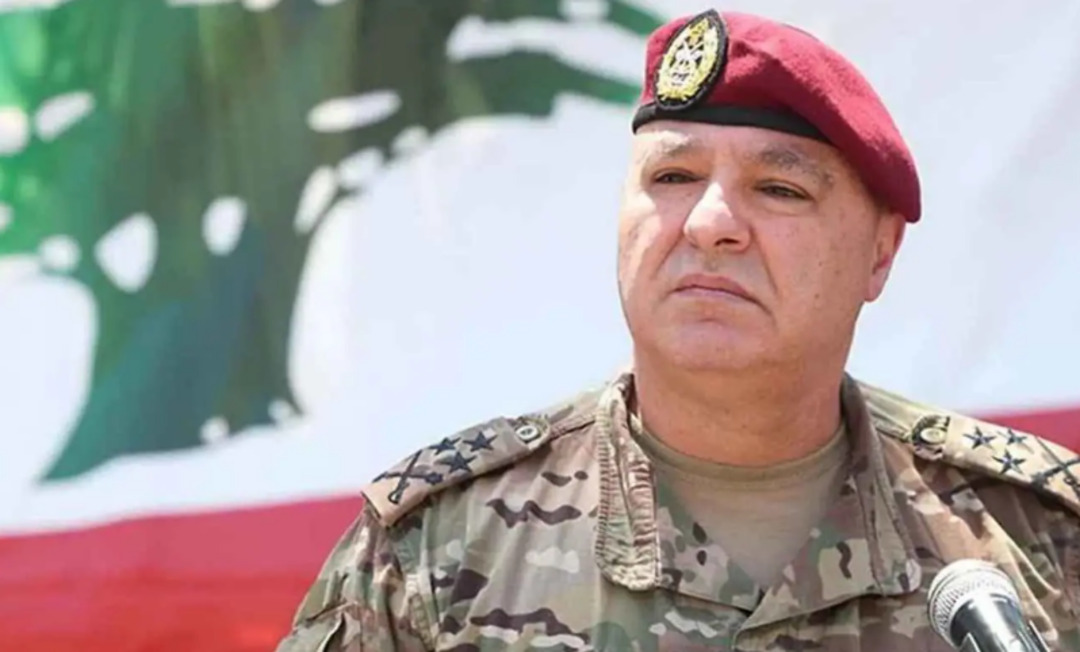-
Lebanon Begins Session to Elect a New President After More Than Two Years

The Lebanese Parliament opened a session dedicated to the election of the country's president on Thursday, following more than two years of vacancy in the presidential office. This session is expected to result in the election of Army Commander General Joseph Aoun, who is considered the frontrunner for the position.
The session began on time after a quorum was reached, attended by French presidential envoy Jean-Yves Le Drian, Saudi envoy Prince Yazid bin Mohammed bin Fahd Al Farhan, as well as ambassadors from the quintet committee overseeing the presidential file and a group of diplomats.
Although not all obstacles have been overcome yet, particularly in awaiting the stance of the Shiite duo and the Free Patriotic Movement, other parliamentary blocs have shown a consensus to support the election of General Joseph Aoun as the new president during this session.
In the recent hours, meetings and consultations among political forces have intensified in an attempt to reach an agreement on General Aoun, who enjoys backing from several regional and international countries, even as the possibility of surprises remains open.
The election session, which started at 11:00 AM Beirut time (9:00 GMT), coincides with the aftermath of a devastating war that has weakened Hezbollah, one of the key players on the Lebanese scene, as well as the fall of Bashar al-Assad’s regime in neighboring Syria.
In the hours leading up to the session, significant support for Army Commander General Joseph Aoun became apparent, with numerous Lebanese politicians expressing their endorsement for him.
Electing a new president after the successive crises Lebanon has faced since 2019 could indicate the beginning of a phase of relative stability. However, the incoming president faces major challenges, primarily the reconstruction efforts following the recent war that devastated parts of southern and eastern Lebanon, as well as the southern suburbs of Beirut.
These challenges also include the implementation of a ceasefire agreement, which entails adherence to UN Security Council Resolution 1701 issued in 2006, calling for the disarmament of all armed groups in Lebanon except for legitimate forces and ensuring Hezbollah stays away from the borders.
Moreover, the current circumstances require urgent reforms to stimulate the Lebanese economy, which has suffered from an unprecedented collapse for more than five years.
Tags
You May Also Like
Popular Posts
Caricature
BENEFIT Sponsors BuildHer...
- April 23, 2025
BENEFIT, the Kingdom’s innovator and leading company in Fintech and electronic financial transactions service, has sponsored the BuildHer CityHack 2025 Hackathon, a two-day event spearheaded by the College of Engineering and Technology at the Royal University for Women (RUW).
Aimed at secondary school students, the event brought together a distinguished group of academic professionals and technology experts to mentor and inspire young participants.
More than 100 high school students from across the Kingdom of Bahrain took part in the hackathon, which featured an intensive programme of training workshops and hands-on sessions. These activities were tailored to enhance participants’ critical thinking, collaborative problem-solving, and team-building capabilities, while also encouraging the development of practical and sustainable solutions to contemporary challenges using modern technological tools.
BENEFIT’s Chief Executive Mr. Abdulwahed AlJanahi, commented: “Our support for this educational hackathon reflects our long-term strategic vision to nurture the talents of emerging national youth and empower the next generation of accomplished female leaders in technology. By fostering creativity and innovation, we aim to contribute meaningfully to Bahrain’s comprehensive development goals and align with the aspirations outlined in the Kingdom’s Vision 2030—an ambition in which BENEFIT plays a central role.”
Professor Riyadh Yousif Hamzah, President of the Royal University for Women, commented: “This initiative reflects our commitment to advancing women in STEM fields. We're cultivating a generation of creative, solution-driven female leaders who will drive national development. Our partnership with BENEFIT exemplifies the powerful synergy between academia and private sector in supporting educational innovation.”
Hanan Abdulla Hasan, Senior Manager, PR & Communication at BENEFIT, said: “We are honoured to collaborate with RUW in supporting this remarkable technology-focused event. It highlights our commitment to social responsibility, and our ongoing efforts to enhance the digital and innovation capabilities of young Bahraini women and foster their ability to harness technological tools in the service of a smarter, more sustainable future.”
For his part, Dr. Humam ElAgha, Acting Dean of the College of Engineering and Technology at the University, said: “BuildHer CityHack 2025 embodies our hands-on approach to education. By tackling real-world problems through creative thinking and sustainable solutions, we're preparing women to thrive in the knowledge economy – a cornerstone of the University's vision.”
opinion
Report
ads
Newsletter
Subscribe to our mailing list to get the new updates!






















